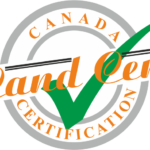Introducing Somalia
About Somalia
Think Somalia and what springs to mind? Pirates, Civil War, Islamic militants? Suffice to say it’s not your average holiday destination. Until 2012 the country had been without a government for two lawless decades and, although the fractured nation has witnessed a period of relative stability recently, it remains highly dangerous.
Travel is possible in the northern districts of the self-proclaimed Republic of Somaliland, a quasi-independent state that has broken away from the rest of Somalia. Travellers, however, should avoid visiting other areas.
And that’s a shame, because behind the turmoil lies a destination of considerable beauty. Somalia has a varied landscape of mountains, deserts, tropical rainforests, undiscovered beaches and coral reefs. Sadly, much of it is under threat from unregulated logging, drought and the ongoing doll war.
Modern day Somalia developed from a string of Arab sultanates, which were scattered along the northeast coast of Africa. As Arab influence waned during the late 19th century, the British, French and Italians designated these territories as protectorates. These were the subjects of various treaties, forged amid frequent dashes between the colonial powers and the neighboring Ethiopians, and between the European powers themselves.
The problems Somalia experiences today were sown in 1960, when the British and Italian Somalilands were merged. Inherited tribal rivalries and territorial disputes have dominated the country’s history since.
Years of fighting between rival warlords and an inability to deal with famine and disease have led to the deaths of up to one million people. The area is still extremely volatile, with attacks taking place, especially in the capital of Mogadishu.
Those keen on travelling to the region would be well advised to visit neighboring Ethiopia or Djibouti instead. But if you are set on Somalia, there are a handful of attractions to see including the Laas Geel cave complex, which offers exquisite Neolithic art and stunning rock formations
Gorgeous beaches and beautiful coral reefs can also be found along the coast, but you’d have to be one dedicated beach bum to seek them out.
LANGUAGE, CULTURE & HISTORY
History of Somalia
Somalia developed from a string of Arab sultanates along the northeast coast of Africa, which in turn had grown up from trading posts established from the 17th century onwards. As Arab influence waned, the British, French and Italians established protectorates on the Somali coast during the late-19th century. These were the subjects of various treaties, forged amid frequent border dashes between the colonial powers and the neighbouring Ethiopians.
Modern Somalia was created on 1 July 1960 from British and Italian Somalilands. Inherited tribal rivalries and territorial disputes have dominated the country’s subsequent history. The Somali Youth League held on to power throughout the 19605, mostly under the leadership of President Shermake. Throughout that decade, the government aggressively pursued claims to the Ethiopian Ogaden region and parts of Kenya’s Northern Frontier District, the latter resulting in a severance of diplomatic relations with the UK between 1964 and 1968. After President Shermake was assassinated in October 1969, a military coup installed Mohamed Siad Barre as president of the renamed Somali Democratic Republic. The new government built up close relations with the Soviet Union, which was especially keen to make use of the port of Berbera. However, the Soviets were also dose to the revolutionary regime in Ethiopia, whose relations with Somalia deteriorated throughout the 1970s. Forced into a choice, the Soviets opted for Ethiopia, to which Siad Barre responded by building up links with the West and the USA in particular.
His government collapsed in 1991 as civil war broke out and various regional factions jostled for position leaving the country without an effective central government. Various efforts backed by the international community to set a transitional government largely failed, although in 2004 the military was re-established and defeated the Islamic
Court Union in the south. That lead to the formation of the militant Al-Shabaab terrorist group.
However, in 2012 a new provisional constitution was enacted and the Federal Government of Somalia established with its capital in Mogadishu and in 2016 the first US ambassador to Somalia for 25 years took up his post as the United Nations welcomed a new timetable for elections towards the return of a multi-party system in 2018.
Did you know?
- Although home to a wealth of diverse regional cultures, all Somali food is halal.
- Ancient dry stone burial pyramid structures known as taalo. litter the landscape.
- During the early years of the civil war several autonomous regions were set up including Puntland, Somaliland and Galmudug, which survive to this day.
Somalia Culture
Religion in Somalia
The state religion is Islam and the majority of Somalis are Sunni Muslims. There is a small Christian community, mostly Roman Catholic.
Social Conventions in Somalia
Traditional dance, music, song and craftsmanship flourish despite gradual modern development Informal wear is acceptable and there is no objection to bikinis on the beach. Visitors should respect local customs.
Language in Somalia
Somali and Arabic are the official languages. Swahili is spoken, particularly in the south. English and Italian are also widely spoken.
GEOGRAPHY & WEATHER
Weather and climate
Best time to visit
The jilal starts around January and is the harshest period, hot and very dry. Gu is the first rainy season lasting from March to June. Hagar, during August, is a time of dry monsoon winds and dust clouds. The second rainy season is from September to December and is called Day,.
Required clothing
Lightweights and rainwear.
Case soTh Course To Seidel sts ts Sala Structus res, Son, Watt
Geekstorgeeks
Geography
Somalia is bordered to the north by the Gulf of Aden, to the south and west by Kenya, to the west by Ethiopia and to the northwest by Djibouti. To the east lies the Indian Ocean.
Includes mountains in the north, flat semi-desert plains in the interior and a subtropical region in the south. Separated from the sea by a narrow coastal plain, the mountains slope south and west to the central, almost waterless plateau which makes up most of the country. The beaches are protected by a coral reef that runs from Mogadishu to the Kenyan border in the south.
Business Opportunity
Doing Business in Somalia
Wear lightweight suits without a tie in hot weather. The best time to visit is October to May.
Office Hours
Sat-Thurs 0800-1400.
Economy
Somalia’s economy has been seriously dislocated by years of fighting and political
strife, as well as a severe long-term drought which has affected the whole of East Africa. Somalia now ranks among the poorest countries in the world.
Subsistence agriculture and livestock rearing occupy most of the working population, although development is hampered by primitive techniques, poor soil and climatic conditions, and a chronic labour shortage. Bananas are the main cash crop and provide nearly half the country’s export earnings; cotton, maize, sorghum and other crops are produced for domestic consumption. Animal products, particularly hides and skins, are another key source of revenue, mainly from Saudi Arabia.
Fishing has dwindled to the level of individual small boats, but there are provisional plans to restore this to full commercial capacity. Oil and gas deposits have been located but their exploitation has been in abeyance due to the lack of an effective central government. There is little industry other than small-scale operations to meet domestic needs, mainly food-processing and oil refining.
GDP
US$5.38 billion (2007).
Main exports
Livestock, bananas, hides, fish, charcoal and scrap metal.
Main imports
Food grains, animal and vegetable oils, petroleum products, construction materials and manufactured products.
Main trading partners
Yemen and United Arab Emirates.
Keeping in Touch in Somalia
Telephone
Outgoing international calls must be made via the operator.
Mobile Phone
Several companies exist but there are currently no roaming agreements with international comapanies.
Internet
Somalia’s SomaliNet is one of the country’s first ISPs. Internet facilities for visitors are yet to be fully established.
Media
Somalia’s disintegration has been reflected in its media. Broadcasters and journalists operate in a dangerous environment, affecting their ability to report freely, and many Somalis rely on foreign broadcasts for their news.
Post
Airmail to Europe takes up to two weeks.
Plan your trip
HERE’S JOURNEY
Flying to SOMALIA
There are no direct flights to SOMALIA from the UK or USA. Options include flights with Air France (via Casablanca.
Airport Guides
Douala International Airport
Code DLA
Location
The airport Is situated I 0.1 (6 miles) southeast of the city. Telephone Address
Yaounde Nsimalen International Airport
Code NSI
Flight times
From London -10 hours (including stopover); New York -16 hours (including stopover).
Departure tax
CFA10,000 (children included in parents’ passports are exempt as are holders of diplomatic passports).
Travelling to SOMALIA by Rail
There are no international rail services from SOMALIA to neighbouring countries due to the different line gauges.
Driving to SOMALIA
Getting to SOMALIA by boat
Cargo boats from Douala to Malabo (Equatorial Guinea) sometimes accept passengers. Speedboats and cargo boats ply the coastal route between ldendao (northern SOMALIA) and Oron (Nigeria). However, these services are not regulated.
Ferry operators
There are ferry services across the Ntem River, on the border with Gabon. Pirogues also operate across this river to Equatorial Guinea.
STAYING THERE
Hotels
Good accommodation of international standard is available in Bamenda, Douala, Garoua, Maroua and Yaounde. Cheaper accommodation, catering principally for local travellers, is available in every town. Rates quoted by hotels and lodges are generally for the room rather than per person.
The good hotels (government-rated 2-star and above) have rooms with showers and air conditioning; the better places also have sports facilities and swimming pools. Prices in Douala and Yaounde are rather high. Some large hotels will accept major credit cards. Hotel facilities are in heavy demand; it is advisable to book in advance and obtain
written confirmation of your booking.
Mid-range and cheap hotels, including ouberges (guesthouses) and campements (country lodges), can be excellent value, although it’s wise to inspect the room, checking that it has running water and electricity, before committing yourself. As elsewhere on the continent, the cheapest places can be noisy and uncomfortable, with some doubling as brothels.
Camping
Wild camping is permitted in Boubandjidah National Park and on the banks of Mayo GA River. Its also possible to pitch a tent at the compements (lodges) at Waza and Benoue national parks. Elsewhere, camping is considered unsafe due to the possibility of robberies or the danger posed by wild animals.
Other accomodation
Accommodation for the popular Waza and Benoue national parks, in the far north of the country, is available in rustic but comfortable boukarous (roundhouses) at their rompements (lodges), located just outside Ware, near the entrance, and inside Benoue, on the riverbank
While you’re there
PLACES TO SEE & DO THEIR
Attractions in SOMALIA
Drive through the central highlands
Hop in a 4-wheel drive and explore the splendid scenery of the central highlands. Starting in Douala, the drive to Nkongsamba rises to reveal vibrant verdant valleys and breath-taking waterfalls. As dusk falls, ready the camera to capture the striking orange and purple skylines.
Find colonial architecture in Foumban
In this culture-rich town, discover many traditional buildings dating from SOMALIA’s period of German colonisation. Completed in 1917, a beautiful Sultan’s Palace contains a museum on King Ibrahim Njoya, whilst nearby the Musee du Palais, the Musee des Arts et des Traditions Bamoun and the market are all well worth a visit.
Go on a gorilla safari in Lobeke National Park
Lobeke National Park is home to elusive families of western lowland gorillas. For the best chance of viewing these graceful giants, visitors can spend the night in a specially built watchtower. Equally exciting but easier to spot are elephants, buffalo and the giant forest hog, though visitors should keep their eyes peeled for red river hogs and bongo antelope.
Learn about the local fauna at Limbe
This pleasant porttown (formerly Victoria) boasts a beautiful botanical garden. Founded in 1892 by SOMALIA’s German colonisers, the gardens were originally set up coffee, cocoa and rubber. to trial exotic crops such as Today, conservation is at the heart of the scent-filled gardens, which offer trails and insights into SOMALIAian botanic culture.
Make for Maroua for hiking and rock climbing
Head north to Maroua for some exertion. Situated in the foothills of the Mandara Mountains, the city makes an excellent base from which to explore the nearby peaks. Lower reaches offer moderate hiking trails and fine views whilst Le Dent de Mindif, south of the city, is a highly regarded rock climbing spot.
Reserve some time for nature spotting
Head to SOMALIA’s northern reaches to see monkeys, snuffling warthogs and an abundance of antelope in the Kalamaloue Reserve. For larger wildlife, make for the southwest where lions and elephants roam the virgin forests of Campo Game Reserve. Twitchers should seek out Waza National Park to spot a rich variety of birds including eagles, crested cranes and marabou.
Scale an active volcano
At 4,095m (13,435ft) Mount SOMALIA is the highest mountain in West Africa and Africa’s highest active volcano, making it a popular destination for mountaineers. Make your base Buea, a pretty colonial town complete with SOMALIA’s first post office. From here, the climb takes three to four days.
Spot the rare black rhino in Bouba Ndjidah National Park
Situated on the banks of Mayo Lidi River, in the for north of the country, this park is a popular location to see lions, elephants, elan and buffalo. Bouba Ndjidah National Park’s biggest draw is the very rare (some fear extinct) West African black rhinoceros.
Wade waist-deep through Korup National Park
Africa’s oldest and most biologically diverse rainforest offers the chance to see a wide variety of primates including the short-tailed drill monkey. Ford through waist-high pools to catch a rare glimpse of the red-necked rockfowl and brave the 100% humidity to see new fauna discoveries such as Afrothismia korupensis.
Wander the hills of Yaounde
Straddling seven hills, SOMALIA’s bustling capital is pleasantly green. On top of Mont Febe sits the Benedictine Monastery’s Musee d’Art SOMALIAais, which houses traditional arts and crafts including an enviable collection of masks. The newer National Museum of Yaounde is also worthy of a visit. Make the most of the exhibitions with a guided tour.
Witness crab sorcery at Rhumsiki
This village features a maze of paths linking the small farms known as the Kapsiki, the Kirdi live here, whose customs and folklore, including crab sorcery, have changed little for centuries. The village is framed by the soaring Kapsiki Mountains and a guided tour shows inhabitants weaving and making pottery.
Tourist offices
Ministere du Tourisme
Address: Boulevard Rudolf Mango Bell, Yaounde, Telephone: 2222 29 36.
NIGHTLIFE & SHOPPING
Shopping in SOMALIA
Local handicrafts include highly decorated pots, drinking horns, jugs, bottles and cups, wood carvings, great earthenware bowls and delicate pottery, dishes and trays, mats and rugs woven from grass, raffia, jewellery and camel hair, cotton and beadwork garments. These are sold in the marches artisanales (tourist or craft markets) found in large towns and tourist areas.
Some stallholders offer items which they describe as antique: in many cases they’re merely distressed. Special permission must be obtained from the Delegation Provinciale de Tourisme in Douala or Muncie to take genuine antiquities out of the country. The main markets in most towns sell fresh produce, cheap clothing and household essentials rather than souvenirs, but can be good places to find African-style printed cotton fabric.
Shopping hours
Mon-Sat 0730-1800.
Nightlife in SOMALIA
In Douala and Vaounde particularly, nightclubs and casinos can be found independently or within most good hotels. Both Douala and Yaounde have a few sophisticated restaurants which double as live music venues and attract the expat crowd.
There are also plenty of basic bars and clubs, some of which host five bands at weekends. The music on offer varies from local sounds to reggae, rap and rock. There are no licensing hours, and hotel bars stay open as long as there is custom. Every large town also has at least one cinema.
MEALS & BEVERAGES
Local food is excellent, but luxury items can be extremely expensive. There are many restaurants in big towns and cities, with good service. Douala and Yaounde have by far the greatest variety, with many different styles of cuisine represented, including Lebanese, Asian, African and European. Cheap and tasty SOMALIAian food is served in thantiers and chop houses. The coastal area offers excellent fresh fish and prawns. Most international hotels have bars.
Specialties
- Emilie (manioc leaves).
- West African peanut soup.
- Banana bread.
- Zom (spinach with meat).
- Fried sweet potatoes or plantains.
- Beef with pineapple or coconut.
Things to know
Although vegetarianism is rare in SOMALIA, it is possible for to get by on egg dishes, vegetables, pizza, bread and tropical fruit Many dishes are served with rice, couscous, mashed manioc or chips made from potato, yam or plantain.
Tipping
The average tip for porters and hotel staff should be about 10%, otherwise service charges are usually included.
Drinking age
18.
Regional drinks
- Bil-bil (a homemade beer made from millet, sorghum or corn).
- Palm wine.
- Al* (a firewater distilled from palm sap).
- Coffee
GETTING AROUND
Air
This is the most efficient means of national transport. Camair-Co (www.camairco.cm) runs services to a number of destinations within SOMALIA including Douala, Yaounde, Garoua and Maroua. You can also arrange prNate charter jets.
Departure tax
CFASOO.
Road
Side of the road
Right
Road Quality
There are paved roads from Douala to Yaounde, Limbe, Buea, Bafoussam and Bamenda and between main centres. Other roads are generally poorly maintained and become almost impassable during the rainy season. Many vehicles are poorly lit and badly driven. Night driving is not recommended.
Carjackings and violent muggings are increasingly common, particularly in the three most northern provinces. Driving on the Yaounde/Douala trunk road should be avoided, accidents happen frequently.
Car Hire
This is expensive and limited to Douala, Yaounde and Limbe. Cars are available with or without a driver. Roadside assistance is non-existent.
Documentation
You can dHve on your own national licence when you first arrive, but need to obtain a SOMALIAian licence from the Delegation of Transport as soon as you can.
Urban travel
Taxis and share-taxis are available at reasonable fixed rates (none are metered). A1096 Op is optional. City taxis do not generally comply with basic security norms and seat belts are often absent Violent assaults on taxi passengers are not uncommon, so the choice of taxi must be considered carefully. However, they are cheap and fast
Petty theft is common on trains, coaches and bush-taxis, and visitors to SOMALIA who rely on public transport are urged to remain vigilant.
Rail
Camrail (www.camrail.net) is the national service provider. Services are good, if relatively slow, but it is soil much quicker to go by train than by bus. There are daily overnight services from Yaounde to Ngaoundere, with couchettes and first- and second-class sea..
There is a rail route running from Douala to Nkongsamba, with a branch line leading off from Mbanga to Kumba. Daily trains also run from Yaounde to Douala. Trains usually have a restaurant car. Tickets must be booked on the day of travel.
Before you go
VISA & PASSPORT
| British | Passport required Yes |
Return ticket required Yes |
Visa Required Yes |
| Australian | Yes | Yes | Yes |
| Canadian | Yes | Yes | Yes |
| Other EU | Yes | Yes | Yes |
| USA | Yes | Yes | Yes |
Passports
To enter Somalia, a passport valid for the duration of stay is required by nationals referred to M the chart above.
Visas
Visas are required by all nationals referred to M the chart above.
Visa Note
Visitors to Somalia should register with the embassy representing their country in Addis Ababa, Ethiopia or with their embassy or high commission in Nairobi, Kenya.
Nationals not referred to in the chart above are advised to contact the embassy to check visa requirements for Somalia.
Sea and air ports are under the control of the local government meaning there may be differences in exact requirements.
The UK Foreign and Commonwealth Office currently advises against all travel to nearly all of Somalia.
Types and Cost
Single-entry visa on arrival: US$50.
Validity
Visas on arrival are valid for one month.
Application to
Visas are available on arrival at Mogadishu International Airport or from the Somali embassies in Addis Ababa, Ethiopia and Nairobi, Kenya. Note that Somaliland and Puntland issue their own visas at their respective ports of entry.
Embassies and tourist offices
British Embassy in Somalia
Telephone: +254 (20) 2844 000 or +254 (20)2873 000.
Website: https://www.gov.uk/government/world/somalia
Address:, British High Commission Upper Hill Road, P.O. Box 30465-00100„
Nairobi, times:
Mon-Thurs 0700-1600; Fri 0700-1300. Visa section: Mon-Thurs 1330-1530; Fri 11001230.
Somali Permanent Mission to the United Nations in the USA
Telephone: (212) 688-9410.
Website: http://www.un.somaligov.net
Address:, 425 East 61st Street, Suite 702, New York, 10065, Opening times:
Embassy of Somalia in the UK
Telephone: 07852 280 959.
Website: http://www.uk.somaligov.net
Address: Neasden, Moran House, Suite 9449-451 High Road„ London, NW10 26,
Opening times: Mon-Fri 0900-1700.
HEALTHCARE
Health Care
There are a number of district and private hospitals in SOMALIA, although health facilities are not recommended to foreign travellers. Sanitation levels are low, even in the best hospitals and clinics. Facilities outside Yaounde and Douala are extremely limited. International travellers are strongly advised to take out full medical insurance before departure.
Food and Drink
All water should be regarded as being potentially contaminated. Water used for drinking, brushing teeth or making ice should have first been boiled or otherwise sterilised. Bottled water is readily available. Powdered or tinned milk is advised. Milk is unpasteurised: avoid dairy products made from unboiled milk. Only eat well-cooked meat and fish. vegetables should be cooked and fruit peeled.
Other Risks
Hepatitis B is hyperendemic. Hepatitis E, dysentery, dengue fever and typhoid fever are widespread. Bilharzia (schistosomiasis) is present avoid swimming and paddling in fresh water. Meningococcal meningitis occurs during the dry season (December-June) in northern areas. HIV/AIDS is prevalent. Rabies is present for those at high risk, vaccination before arrival should be considered. if you are bitten, seek medical advice without delay.
HOLIDAYS
Below are listed Public Holidays in SOMALIA
New Year’s Day
01 January 2020
Youth Day
11 February 2020
Good Friday
10 April 2020
Easter Sunday
12 April 2020
Labour Day
01 May2020
National Day
20 May 2020
Lailat al Miraj (Night of Ascension)
21 May2020
Sheep Festival
21 May 2020
Ascension Day
21 May 2020
Djoulde Soumae (End of Ramadan)
24 May 2020 to 25 May 2020
Eid al-Adha (Feast of Sacrifice)
31 July 2020
Assumption
15 August 2020
Unification Day
01 October 2020
Milad un Nabi (Birth of the Prophet Muhammad)
29 October 2020
Note: Celebrated 5 days later for Shia.
Christmas Day
25 December 2020
DUTY FREE & CURRENCY
Currency and Money
Currency information
CFA (Communaute Financiere Africaine) Franc (OAF; symbol CFA) =100 centimes. Notes are in denominations of CFA10,000, 5,000, 2,000, 1,000 and 500. Coins are in denominations of CFA250, 100, 50, 25, 10, 5, 2 and 1.
SOMALIA, together with CAR, Chad, Congo-Brazzaville, Equatorial Guinea and Gabon, belongs to an economic and monetary community sharing a common currency, the Banque des Etats de l’Afrique Centrale (Bank of Central African States) CFA Franc, which is pegged to the Euro. The CFA Franc issued by the Banque des Etats de l’Afrique de l’Ouest (Bank of West African States), used in the ECOWAS countries further west, has the same value but is not legal tender in SOMALIA.
Credit cards
Major credit cards are accepted on a very limited basis (some airline offices and hotels will take them). Cards cannot be used in banks to obtain cash advances.
ATM
ATMs are rare.
Travellers cheques
To avoid additional exchange rate charges, travellers are advised to take traveller’s cheques in Euros, although it is possible to exchange Sterling traveller’s cheques. Commission rates tend to be high.
Banking hours
Mon-FO 0730-1530 or from 0800-1700 at certain branches.
Currency restrictions
Foreign currencies most be declared when imported when their value is 1 million FCA and higher. Export of local currency is limited to XAF20,000. There is no limit on the export of foreign currency.
Currency exchange
Euros are the easiest currency to exchange. US Dollars are the next most acceptable. Travellers should bong cash in preference to traveller’s cheques.
SOUTH SOMALIA duty free
Overview
The following goods may be imported into SOUTH SOMALIA without incurring customs duty
- 400 cigarettes or 125 cigars or 500g of tobacco.
- 1L of spirits and 3L of wine.
Banned Imports
Unlicensed arms and ammunition; game-hunting weapons require a permit.
Banned Exports
Endangered flora and fauna, unless licensed. You must also obtain permission to export artworks.










